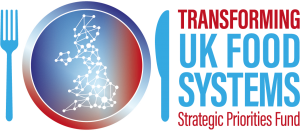Why is the research needed?
Poor diet is the biggest risk factor for early deaths worldwide, leading to 1 in 7 deaths in Britain every year. Human biology is failing to keep pace with the increasingly obesogenic food environment. Foods high in fat, sugar and salt make up just over half of all meals consumed in the average UK household.
Many studies suggest that our diets lack oily fish, fibre from wholegrains, fruit, vegetables, nuts and seeds. We often consume more meat than recommended. If diets continue along the current trajectory, it will increase pressure on our health and social care systems and the environment. This can lead to economic and social instability.
Despite the efforts to address the impacts of agricultural practices and promote sustainable production in the UK, there is still significant scope, and an urgent need, for change. This comes into sharp focus when combined with transformation of diets for health.
It is clear, however, that agricultural production can no longer be addressed in isolation; we also need to consider the role of changing patterns of demand in driving our production systems. This is particularly important in terms of how much food and what types of food we need to produce, manufacture and import in the future, and which foods we should prioritise to improve health and sustainability.
It is increasingly recognised that we need to move away from a ‘calories per hectare’ approach to one that considers the ‘number of people fed healthily and sustainably per hectare’. This interplay between production and demand, and environment and health, is the type of whole systems research we are looking to support through the Food Systems SPF programme.


